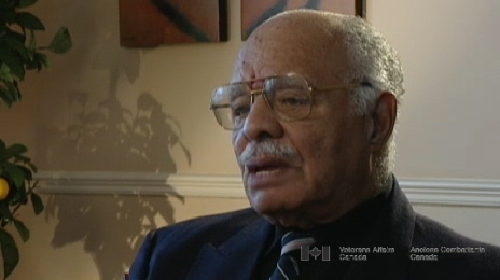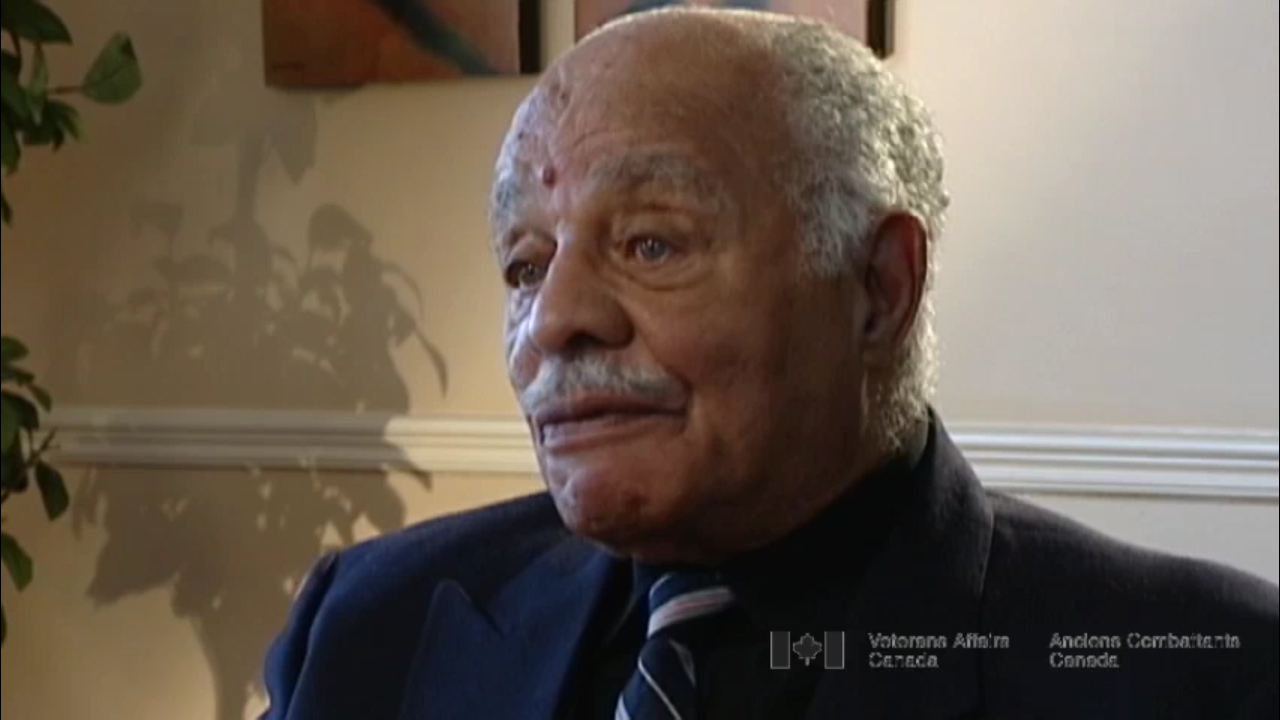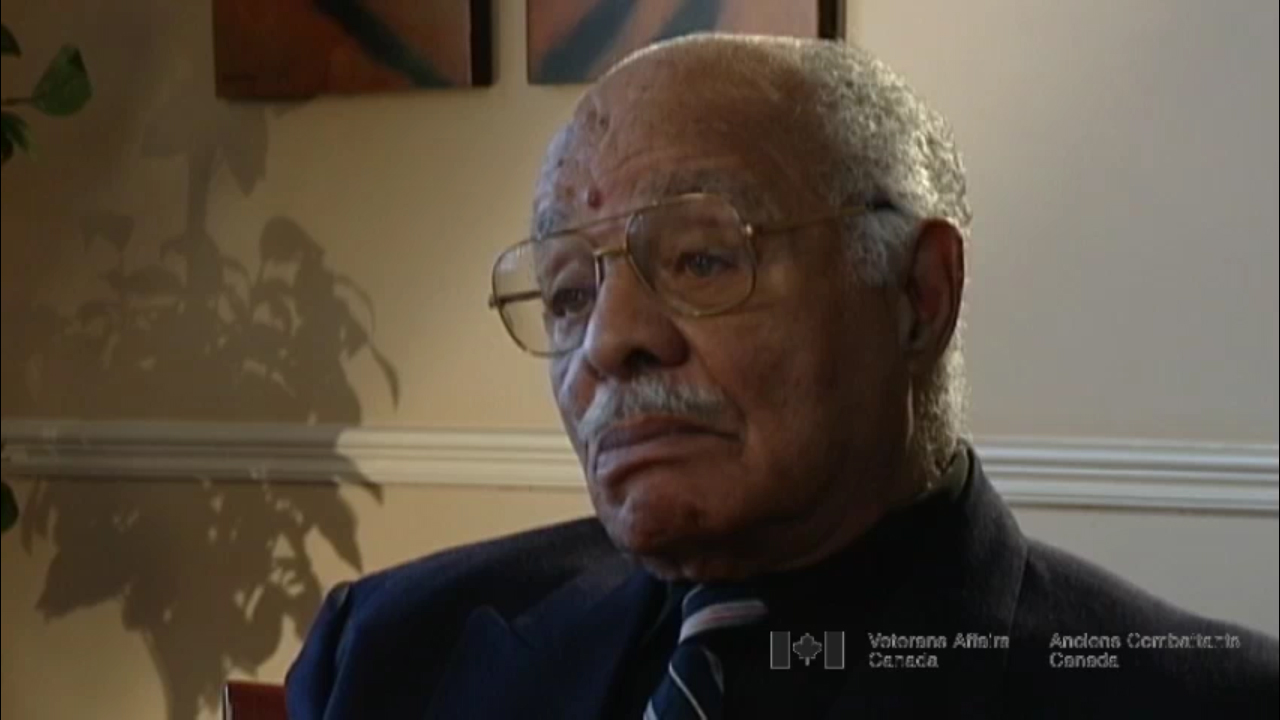There was many dangers there. One time I recall being strafed by
a couple of planes as I was following along the roadway along
these trees that sort of shielded me from the aircraft. Another
time I was bombed, not particularly bombed, but this one
plane crash-landed and just blew up, and I went over there
about an hour later to see what was left of the plane but all
I could see was just shreds of metal and flesh and this sort
of thing which was an unpleasant sight because the whole area
for a good length, giving an idea just how long the plane had
been on the ground before it completely blew up. There was
another time when I saw, oh, many dead cows and tanks that
were full of dead soldiers, dead Germans, and some of the
cities that we went through were just devastated to a point
that you can imagine that the bombing of these areas was so
serious and so devastating that it’s amazing that the bombing
was done prior to our getting into these areas, especially when
we landed at the Falaise where most of the bombing started.
That day, no it was night time when we arrived in Falaise,
or on the shore of France there just before we went into Falaise,
the sky just lit up and it just seemed that the bombs were coming
down, but where do we go? There was no holes that we could get
into, and, of course, I was with one of our armoured command
vehicles, which is a very large vehicle. It weighs about four
tons and it had to have this sending equipment inside so
luckily I was able to pretend that this was going to be some
protection for me but before I knew it things calmed down a bit,
thank goodness. This was the worst of my entry into France.
But then after that I had to work and work like mad to start
working on the front lines where the communications had to be
looked after and so it meant I had to go towards the front
and all these things I used to see and the smell of burnt cattle,
human beings that were laying all over the place. It wasn’t a
very pretty picture, but I think that in war these things are
what is common place. But those were terrible times,
but after that, we had occasions where bombing also had an
effect on all of us and luckily, and thank the good Lord there we
were able to come out of many of those areas with some success.
You could only imagine the effects on most people that were not
the cause of it, were involved. The local people that live there,
they used to protect a lot of the enemy. The Germans lived in
a lot of these houses that were bombed, bombed out and a lot
of civilians lived there too. And when you go into a town and the
town is almost covered with rubbish and debris from the buildings
that were once there, and what is below that, your imagination
could go away with just feeling, well, can you imagine, are there
people still alive there? You would go into some of these houses
and the big wine vats would be filled with dead people and this
sort of thing. It certainly brought a sense of, this is not real,
you know, it’s not real, but it’s happening and it takes a while
before you realize that this is what war does. At that time we
just went through the war expecting to see more of this, and it
had to be done, it had to be done, and as each war, each phase
of the war proceeded with more killings and more destruction,
I think that was a relief that at least we can get away and relax
and get over it before we start the next phase of the operation,
you know. So I think a Veteran has a lot of impressions in his
mind that he’s gathered from his own experiences, which differ
from one Veteran to another. So, I think that it has an effect
on you which you’ll never forget.





